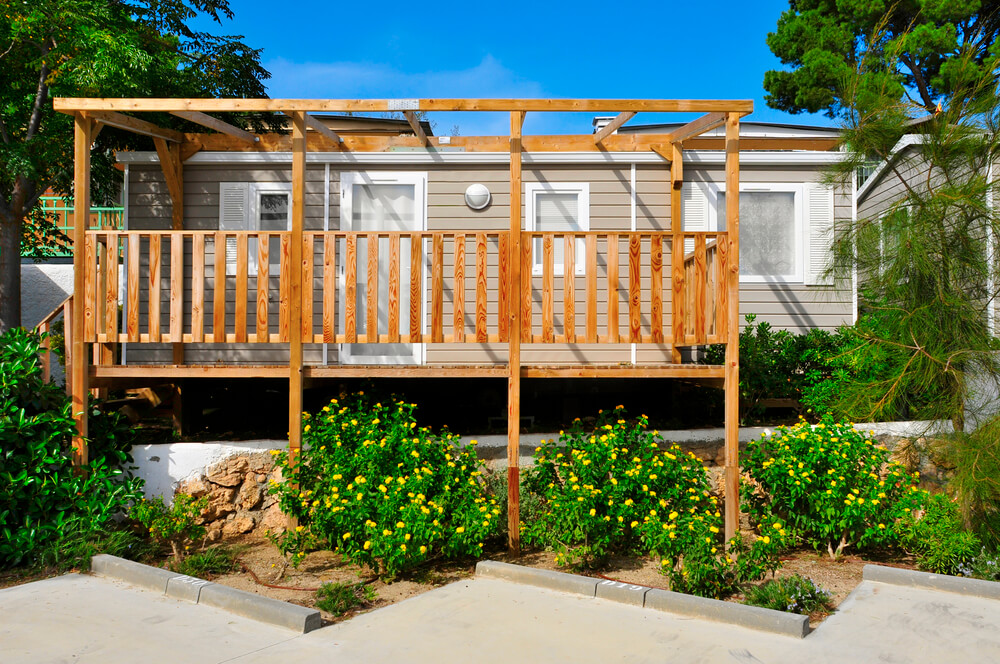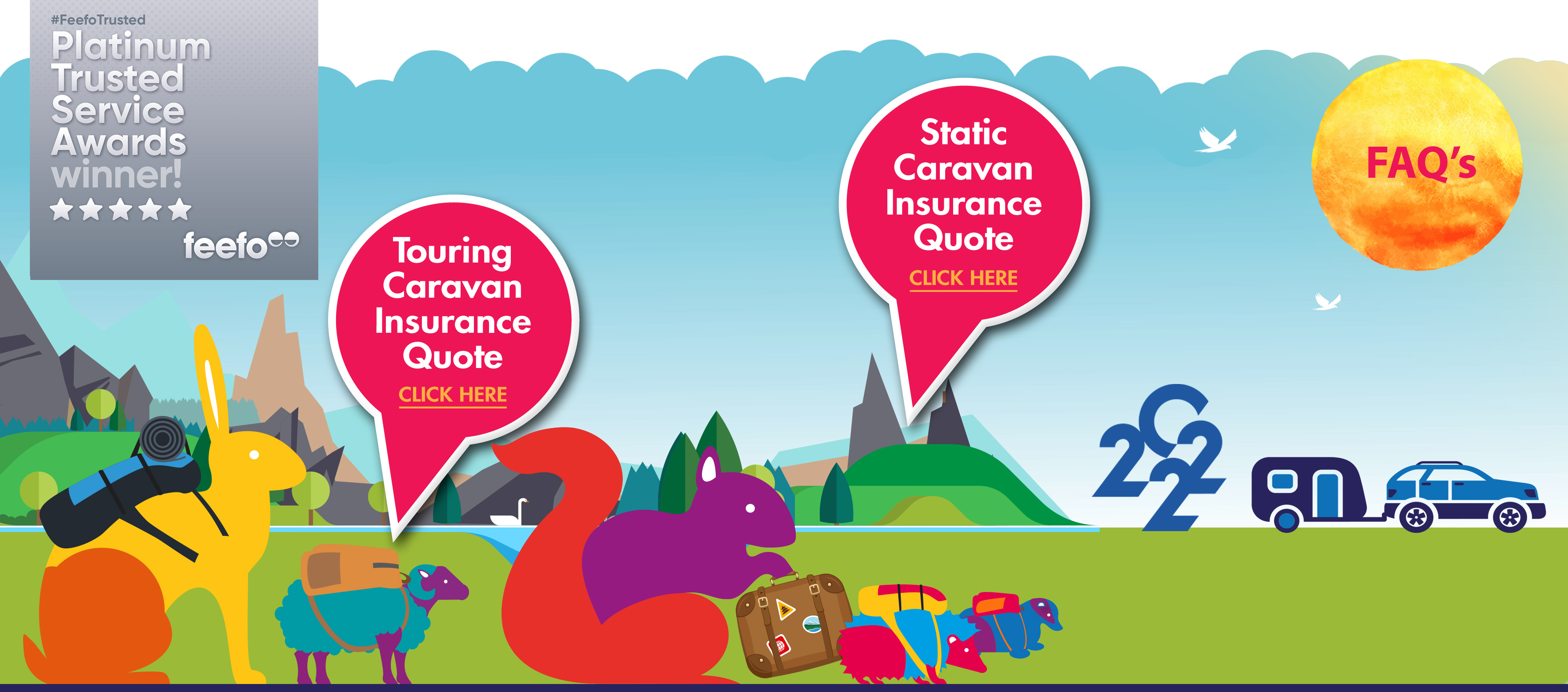
T
Thinking about buying a holiday home, in a part of the country of your choosing, set in its own manicured grounds? Static caravans have been meeting the dreams of thousands of happy owners for many years.
A static caravan typically offers a holiday home from which to enjoy:
- somewhere to take your main holidays lasting several weeks – or more;
- an escape for occasional weekend breaks;
- a wide choice of locations to suit your particular tastes – close to the beach, in the depths of the countryside or near popular tourist attractions;
- a chance to sample life in a part of the country to which you might want eventually to retire;
- a gathering place for entertaining your friends and relations; and
- a handy money-spinner when you let it to paying guests for their holidays and visits.
Before investing in such a home, however, what are some of the things it might be helpful to know in advance?
Location
Practically everything to do with buying a home – for holidays or otherwise – has to do with location.
In the case of your second home, it is likely to be a question of choosing a part of the country to which you want to return again and again. To be able to use it for weekend breaks or for last-minute getaways, it is also important that it is not too far away from where you live, so as to avoid many hours of driving just to get there.
If you are thinking of letting it occasionally or regularly, it needs to be located in areas popular with tourists and other visitors.
Your static home
Choosing the right caravan as your holiday home is clearly critical – and fortunately, there is a huge range of different types and sizes of static home to suit practically any preference or purpose.
One of the first decisions, when you begin your search, is whether to choose a caravan already on-site or directly from a manufacturer or private sale elsewhere.
If you choose to buy a home already on a park you like, bear in mind that the management is almost certain to be charging the current owner a commission on the sale.
If you are buying from elsewhere, however, you need to take into account whether your chosen park has a pitch available, whether it approves your type, size and age of caravan and the cost of transporting the home to the site itself.
When assessing suitability, prospective buyers may also wish to clarify park rules around subletting, age limits on caravans, permitted upgrades, and any restrictions on use. These factors can influence both enjoyment and insurability, and should be reviewed carefully before committing.
Choosing a park – and the lease of your pitch
So that your static caravan enjoys the security, proximity to essential services and on-hand management throughout the year, you are likely to want to choose carefully the caravan park on which it is pitched.
This means choosing not only the facilities on offer but also the terms under which your caravan occupies the pitch you rent or lease – it is commonly called a licence agreement. There is clearly greater security and less uncertainty if the respective rights and obligations of you and the park owners are set out in writing.
The greatest confidence is likely to be given by an agreement that complies with the code of practice formulated by the British Holiday and Home Parks Association (BHHPA) and the National Caravan Council.
The park you choose will charge a rent for the lease of the pitch and this varies from one park to another and often between different pitches at the same park. With the lease, you are also agreeing to any terms and conditions relating to the management of the park.
Perhaps one of the most important of these is the length of the lease – anything from 5 to 20 years – and may impose conditions relating to the maximum age of the static caravan you may keep on the pitch.
Other conditions may be designed to ensure that caravan owners treat neighbours with the respect and consideration they are due, for example, in terms of avoiding excessive noise and keeping the pitch and its surroundings neat and tidy.
Other ongoing costs
The services you receive are typically provided by the park owners and since you are buying them indirectly, they might include any commission management decides to impose. To gauge the likely amount of your monthly electricity bills, you might want to request sight of previous bills to former owners.
In the case of bottled gas, you might want to ask whether this is supplied only by the park management or if it may be bought independently off-site.
The National Association of Caravan Owners (NACO) explains that since you do not live permanently in your static caravan, you are not liable to pay Council Tax – although your lease agreement with the site might include a contribution towards the business rates of the company.
In practical terms, budgeting should also allow for caravan insurance, ongoing maintenance, wear and tear, and compliance with site rules. While static caravans can retain value in certain circumstances, this should not be assumed, and owners are generally advised to view them primarily as lifestyle assets rather than financial investments.
Letting your holiday home
Many static caravan owners take the opportunity of earning extra cash from their investment and help to offset running costs by letting their second home to visitors. To help you do so, many parks offer a managed letting service to find suitable tenants as and when you need them.
Naturally, there is a charge for this service and you may also need to pay a setup fee and for cleaning the caravan after each guest leaves – these costs need to be taken into account when calculating any income you might expect from lettings.
Alternatively, of course, you may decide to handle all of the lettings business yourself.
If you do decide to let, you need to make sure that you have adequate static insurance to cover these paying guests. Whether the caravan is used solely by you or let to paying guests, insurance becomes a key consideration once ownership begins.
Static home insurance
The moment you become the proud owner of your holiday caravan, it is important to arrange appropriate static home insurance. You might consider several insurance providers, of course, but specialists such as ourselves here at Cover4Caravans have many years of experience in matching the needs and requirements of your particular caravan with the most suitable products available – at what we believe is a competitive price.
Your park management is almost certain to suggest their own insurance provider and you might feel under some pressure to arrange cover from this source. Typically, however, you are under no such obligation, and you might want to source your own static caravan insurance. While the site owner may ask for sight of your standalone cover, and may charge a small admin fee, overall, you may be able to save money by getting your own static homes insurance.
From an insurance perspective, it is important to disclose accurately how the caravan will be used, including whether it will be owner-occupied only or let to paying guests. Failure to disclose material information could affect the validity of cover or the handling of a claim, depending on policy terms.
Public liability insurance
Although you might have declined the park’s offer to arrange cover, as we touched on above, you may still be required to furnish proof of your insurance protection in one important respect in particular – public liability indemnity.
Both you and the park management share an interest in ensuring that there is cover in place to indemnify you against claims from members of the public, other park residents and their guests who may suffer a personal injury or have their property damaged as a result of some negligence on your part.
By far the most compelling reason – as far as the park owners are concerned – for insisting on caravan insurance is for the protection of other caravan owners on the site, their visitors, and members of the public.
This element of protection is afforded by the public liability cover which is typically an important component of insurance for static caravans.
This gives you indemnity from any claims arising from your neighbours, visitors, or members of the public that, as a result of your negligence or breach of your duty of care have suffered a personal injury or had their property damaged. In that event, your insurance is there to ensure that any such injured party is adequately compensated (up to pre-agreed limits).
If you intend to let your holiday home to other people when you are not using it, public liability insurance is again an essential form of protection from claims made by such temporary tenants or their visitors who allege your negligence in causing personal injury to them or damage to their property.
Public liability claims might involve very substantial demands for compensation, so it is typical for cover to start at £2 million (with the static insurance policies we offer) and it is by no means uncommon for it to be more than that sum.
What else needs to be covered in my static home insurance?
Public liability insurance is not the only element of static caravan cover that is likely to provide invaluable protection. Other elements typically include:
- safeguarding the structure of the caravan itself from such potentially catastrophic events as fire, flooding, impacts, vandalism, and theft;
- cover for the contents of your holiday home;
- an optional extra offered by some policies might extend to emergency accommodation in the event of your static caravan being destroyed or rendered unusable by a major insured incident;
- if you are moving your caravan onto the site or relocating it to an alternative park, you might also want to ensure that you and the transport company have sufficient goods in transit insurance to safeguard your investment whilst it is on the road.
Owners who let their caravan may also wish to consider their ongoing duty of care to guests, including maintaining fixtures, appliances, and access areas in a safe condition. While insurance can provide financial protection, it does not remove the responsibility to take reasonable precautions. Your insurer is entitled to rely upon your taking all reasonable steps to mitigate any loss or damage – especially during those times when your holiday home is vacant or unoccupied.
From an ownership perspective, it may also be sensible to consider how often the caravan will be used, whether it will be left unoccupied for extended periods, and how seasonal patterns of use could affect maintenance responsibilities, security expectations, and insurance requirements. Insurers will typically expect reasonable care to be taken during quieter periods, particularly outside the main holiday season.
Summary
If you are thinking of buying a static home, therefore, some of the principal considerations might be summarised by the location, your choice of caravan park, the particular holiday home you choose and the insurance that is in place to protect your investment.
Static caravans may make ideal second or holiday homes. You might choose to enjoy one all to yourself or to let it to friends or other paying guests from time to time. There may be more involved in buying and owning a static caravan than first appears, but a little background research – and talking to any other owner who has gone before you – is likely to ensure that you go into it with eyes wide open and years of enjoyment ahead.
Further reading: Guide to static homes.

